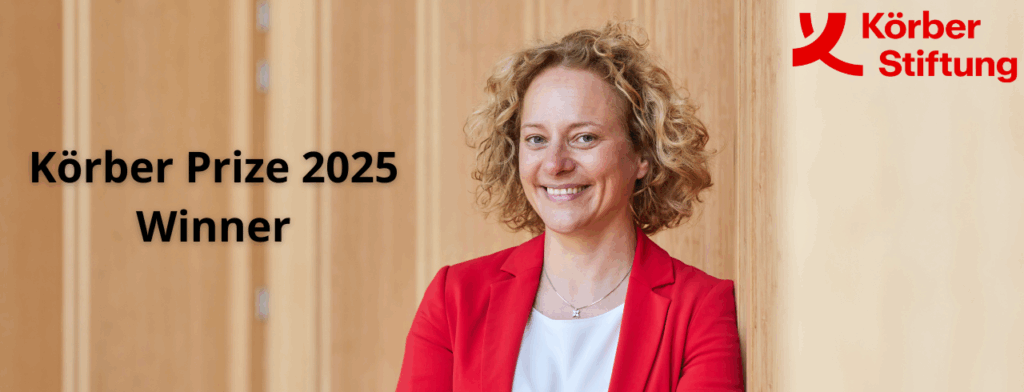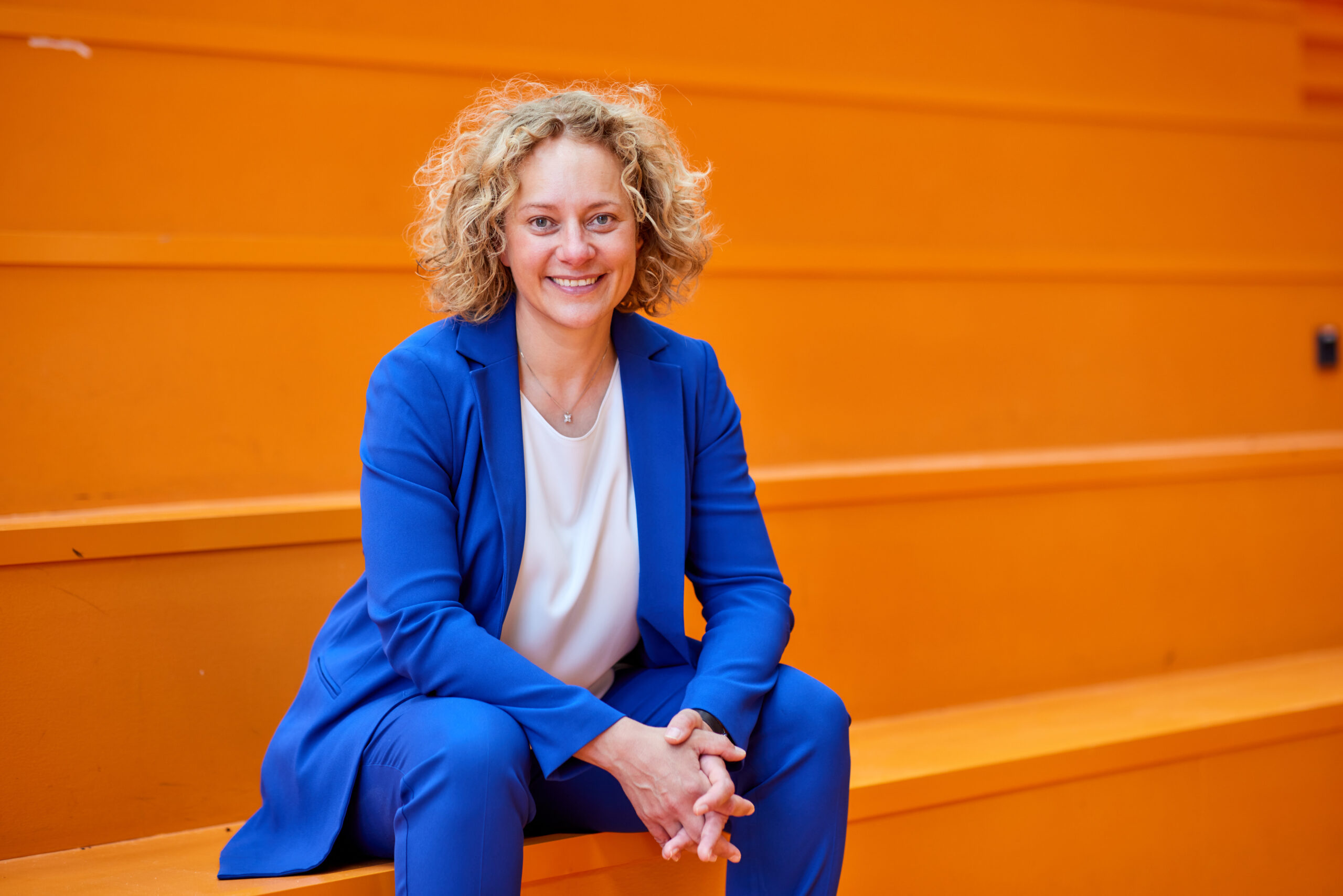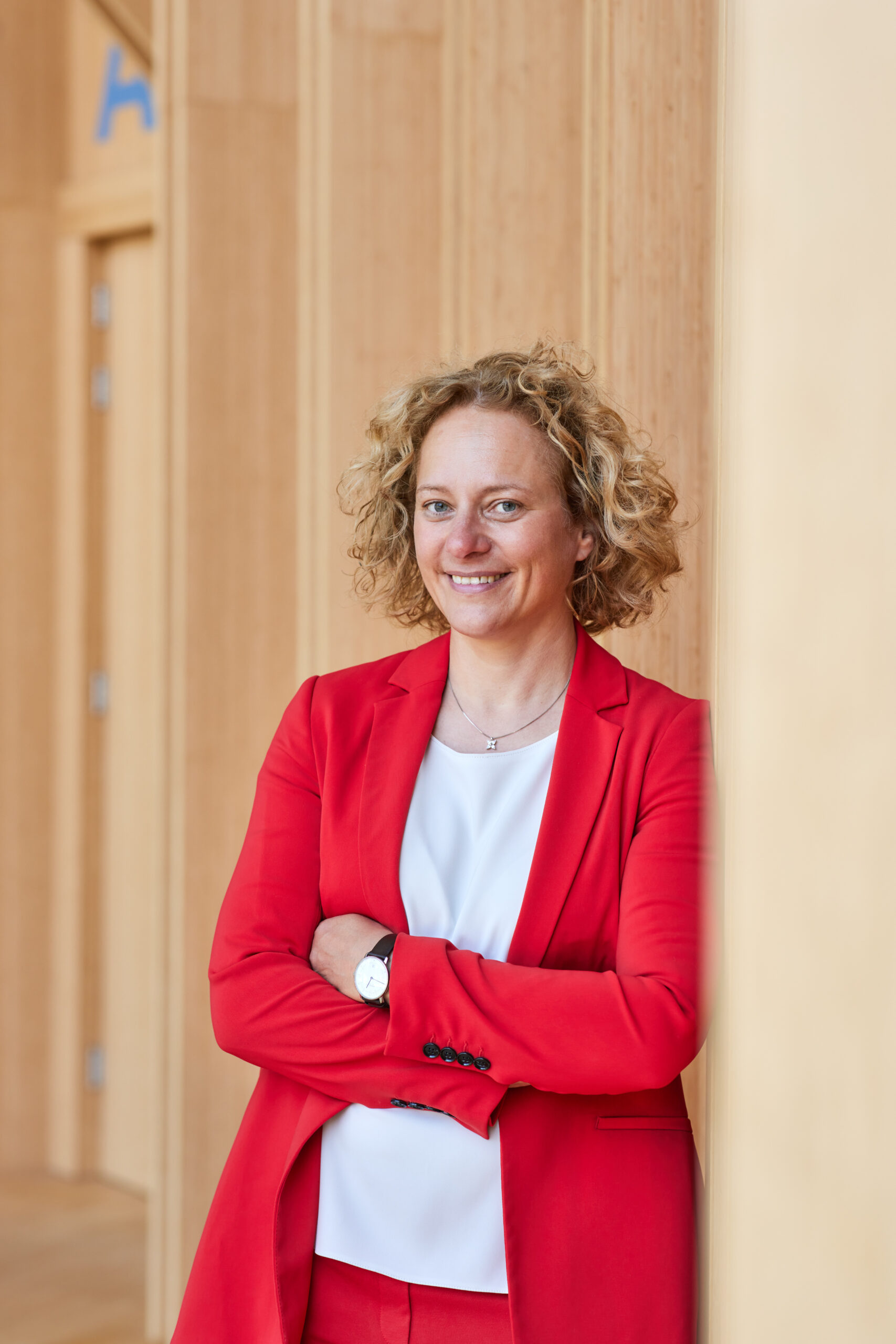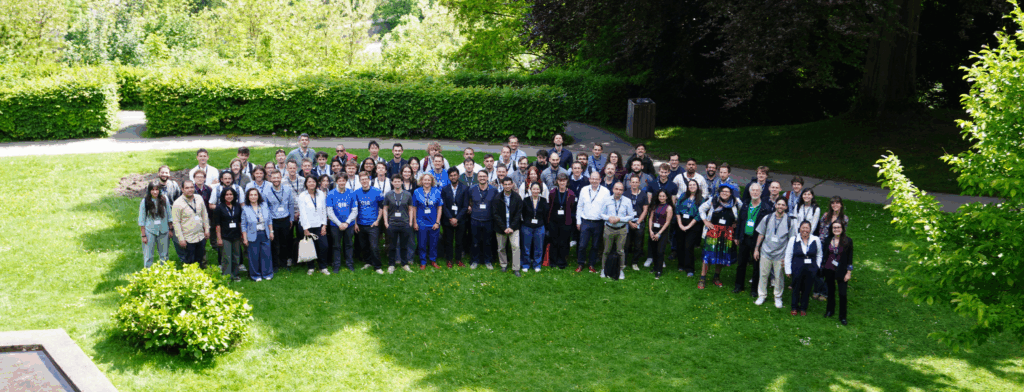24.06.2025News
Quantum internet pioneer Stephanie Wehner awarded the Körber Prize

Director of the Quantum Internet Alliance and former ethical hacker awarded the €1 million Körber European Science Prize
This press release was first published here.
Hamburg, 24 June 2025. Computer scientist and quantum physicist Stephanie Wehner has been awarded the prestigious Körber European Science Prize. The €1 million award recognises her groundbreaking work on the quantum internet – an ultrafast and extremely safe network that will enable entirely new applications and computing possibilities. In the future, data could be transmitted with absolute security, while networked applications solve problems in record time far beyond the capabilities of today’s internet. The award coincides with the United Nations’ International Year of Quantum Science celebrating 100 years of quantum mechanics.
Wehner is Director of the European Quantum Internet Alliance and a Professor at the QuTech Institute at Delft University of
Technology in the Netherlands. Prior to her career in academia, she worked as an ethical hacker, testing IT systems for vulnerabilities. Today she is a driving force behind the creation of a European quantum internet. “My goal is to make the ultimate form of communication allowed by nature – quantum communication – available to all,” says Wehner.

An operating system for the quantum internet
Wehner’s latest breakthrough is QNodeOS, the world’s first operating system for quantum networks. Until now, quantum applications had to be painstakingly coded for each individual device – often requiring in-depth knowledge of quantum physics – with no possibility of networking. It was much like the early days of classical computing, when machines were not yet networked via the internet and could only be operated by specialists.

QNodeOS changes that. It allows quantum programs to run on different devices and link them together – without requiring specialised knowledge of the underlying quantum physics. While classical computers are all largely built on similar architectures, quantum systems differ profoundly in their underlying principles. Some rely on the structure of diamonds; others use the spin of electrons. Their inner workings – and often even their outward
appearance – could hardly be more diverse. Thanks to Wehner and her team, these heterogeneous systems can now be programmed without any knowledge of the underlying device – a breakthrough on the road to a quantum internet and a vital boost to Europe’s technological competitiveness.
The internet, but not as we know it
Classical computers use bits that represent either 0 or 1. Quantum computers, by contrast, employ quantum bits or ‘qubits’ that can be in a superposition of 0 and 1 simultaneously. Quantum algorithms exploit this superposition, thereby vastly speeding up calculations. Some mathematical problems can already be solved much faster via a quantum computer than by a classical machine.
Qubits can also be entangled across great distances, enabling tamper-proof data transmission: any attempt to intercept the link between entangled qubits alters their state and exposes the attacker. A future quantum internet could therefore securely transmit sensitive data, perform encrypted cloud computations, remotely operate quantum processors, verifiably delete digital information, and protect digital identities over long distances.
A European quantum internet
Using the Körber Prize funds, Wehner will explore new applications of quantum networking that could be deployed in science and industry within the next five to ten years. Her focus lies on so-called load-balancing problems – situations in which computers must decide how best to allocate resources when multiple tasks occur simultaneously. Harnessing the speed of quantum decision-making could, for instance, help national power grids respond more quickly during peaks in electricity demand, directing energy precisely where it is needed most.
Through close collaboration with research groups in the European Quantum Internet Alliance, Wehner aims to have a quantum network linking two metropolitan areas, hundreds of kilometres apart, up and running by 2030. The project will help position Europe as a global leader in building the quantum internet – while also creating new opportunities for start-ups and digital business models.
“Europe is at the forefront of quantum networking research,” Wehner says, noting that QNodeOS was developed in collaboration with scientists in the Netherlands, Austria and France. “But Europe should not only lead in science – it must also build a strong ecosystem that turns research into a usable quantum internet and drives progress in both the economy and society.”
The researcher

Stephanie Wehner was born in 1977 in Würzburg, Germany. While studying computer science in Amsterdam, she worked as an ethical hacker for the IT security firm ITSX, following full time work for the Dutch internet provider XS4ALL before her studies. Since 2016, she has held the Antoni van Leeuwenhoek Professorship at the QuTech Institute of Delft University of Technology in the Netherlands, and since 2017 she has co-founded and led the European Quantum Internet Alliance (QIA). Wehner is an elected member of the Royal Netherlands Academy of Arts and Sciences. She co-founded the world’s largest quantum cryptography conference (QCRYPT), as well as the spin-off Delft Networks.
The Körber Prize
The Körber European Science Prize will be awarded to Stephanie Wehner on 19 September 2025 in the Grand Hall of Hamburg City Hall. Endowed with €1 million, the Körber Prize is among the world’s most prestigious science awards. The prize money must be used for research and science communication; up to ten percent may be used for personal purposes. Since 1985, the Körber-Stiftung has annually honoured major breakthroughs in the physical or life sciences in Europe. To date, eight Körber Prize laureates have subsequently received the Nobel Prize.
The award ceremony also marks the highlight of the Hamburg Science Summit. Organised by Körber-Stiftung and Hamburg’s Ministry of Science, the conference will bring together leading figures from science, politics, business and think tanks on 18 September to debate the future of science and innovation in Europe. hamburg-science-summit.de

